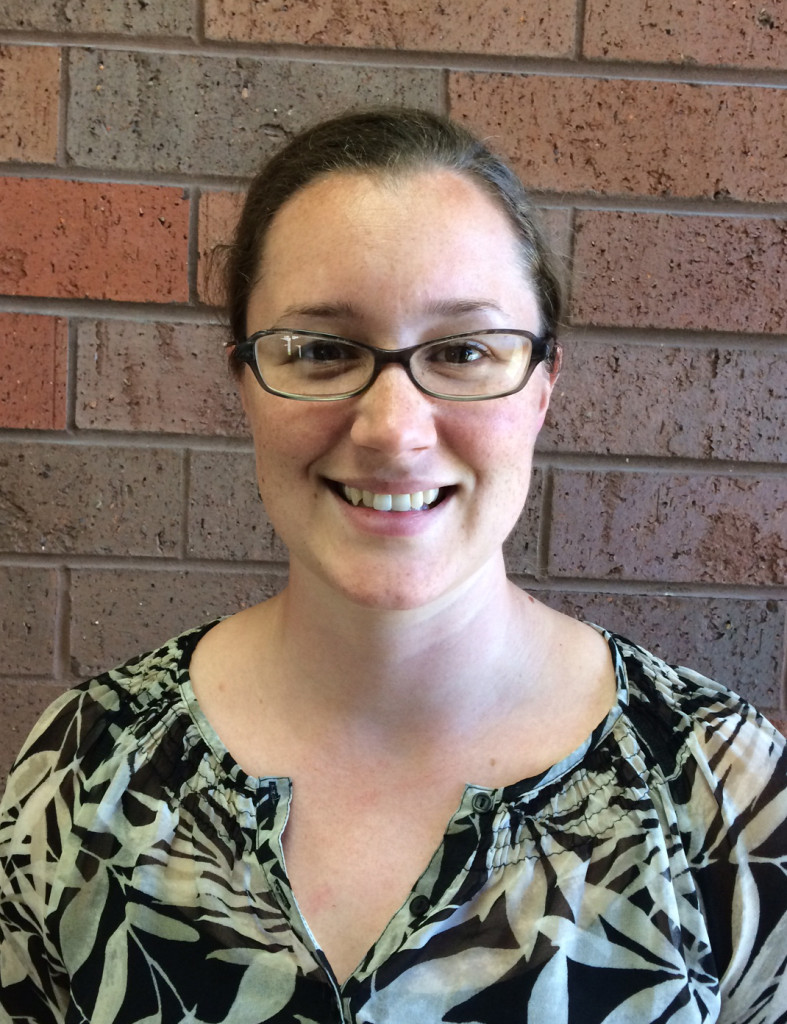[caption id="attachment_35481" align="alignright" width="250"]

Anna Alinda[/caption]
Teachers from around the U.S. participated in a
National Endowment for the Humanities Summer Institute for Teachers July 14 – Aug. 1 at UW-La Crosse. One teacher explains how the institute is helping her do more hands-on science with her students.
Anna Alinda, high school chemistry teacher, Padua Academy, in Wilmington, Delaware.
Q: What are some of the challenges you face as a high school science teacher?
A: The sophomore chemistry course I teach is mandatory. When a class is not an elective, it’s sometimes hard to get students excited. They’re not necessarily there because they want to be. The more I can do hands-on activities — the better. For example, my students love labs. We do an indigo lab where students bring in something cotton to dye — T-shirts or socks. For the dye to bind with the cotton, it needs to undergo a process of reduction and oxidation. In the lab, we talk about what happens to reduce the indigo. Then they watch the process of oxidation as they dye the fabric. The students are able to see the real-world application of this concept that used to just be an equation on the board.
Q: How is this institute helping you teach in this hands-on way?
A: The Institute is giving me more ideas. The practical, real-world side of science is so well demonstrated through archaeology. Archaeology is this cool subject to begin with. Thanks to things like "Indiana Jones," there is this romantic view of it in the general public. I want to show students how science can inform the reality of archaeology — so they see more than the romance of it. Also, a lot of professional development for teachers is about how we deliver information, not what information we are giving our students. I like that this is content-based professional development. To be able to learn new information and bring it back to students is so rare and valuable.
Q: You are from Delaware. Why did you travel so far for this particular institute?
A: This is a program I’ve been interested in for a while because it bridges the sciences and humanities. Students often see the sciences and humanities as completely unconnected fields. It will be great exposure for students when I bring this back to the classroom; a way to show them how the two subjects intersect.
Q: Is there any particular project you plan to bring back to your classroom?
A: It is amazing how easily ideas for the classroom came from the content of the Institute. A lot of what we are doing here throughout the process of archaeology follows scientific inquiry. For my sophomores, I plan to teach a lesson about isotopic analysis of bones. Isotopic analysis is where you use relative amounts of isotopes to figure out what people ate, where they traveled, etc. This is an awesome way to make a real connection between classroom material and a practical application.
Q: Has this institute lived up to your expectations?
A: Yes. The staff here at UW-L and
MVAC are, first of all, so informed and professional. Also, it's been great to share instructional strategies and content ideas with other teachers. I am fortunate to be surrounded by truly exceptional colleagues. It’s amazing to see how you can have a math teacher, history teacher and biology teacher come together in this cool intersection to talk about how we can enrich out students' experience.
The NEH Institute
The Mississippi Valley Archaeology Center held its fifth NEH Summer Institute for Teachers. Twenty-five teachers from around the U.S. spent three weeks on campus learning about the process of archaeology and the area’s pre-European cultures. The teachers, from 17 states, teach elementary through high school levels in a variety of subject areas including: social studies, history, geography, chemistry, earth science, physics, biology, engineering, math, language arts and art.

 Anna Alinda[/caption]
Teachers from around the U.S. participated in a National Endowment for the Humanities Summer Institute for Teachers July 14 – Aug. 1 at UW-La Crosse. One teacher explains how the institute is helping her do more hands-on science with her students.
Anna Alinda, high school chemistry teacher, Padua Academy, in Wilmington, Delaware.
Anna Alinda[/caption]
Teachers from around the U.S. participated in a National Endowment for the Humanities Summer Institute for Teachers July 14 – Aug. 1 at UW-La Crosse. One teacher explains how the institute is helping her do more hands-on science with her students.
Anna Alinda, high school chemistry teacher, Padua Academy, in Wilmington, Delaware.
